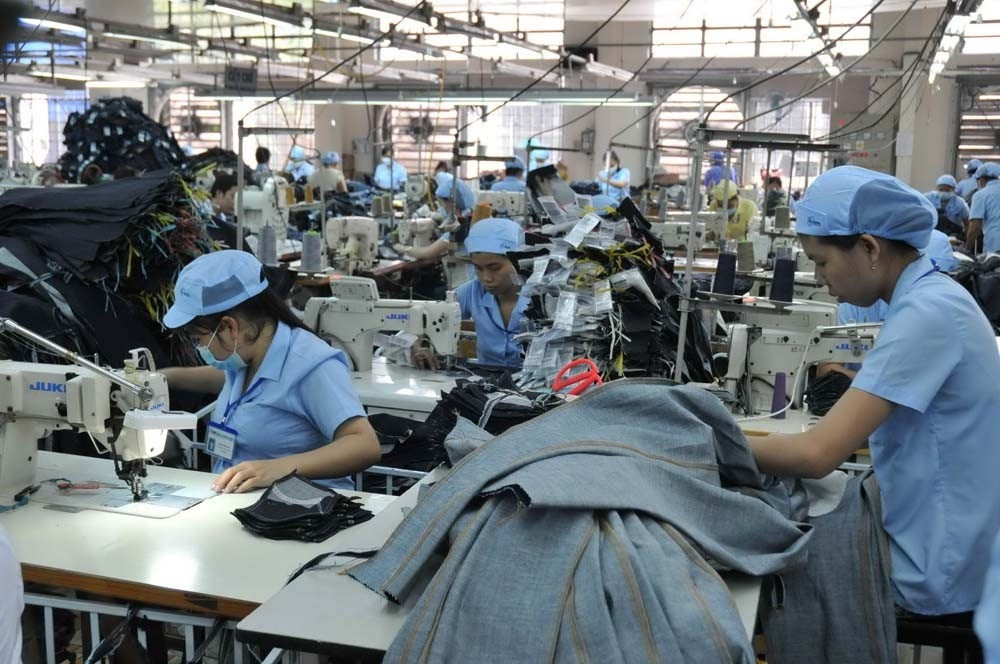

The BCI, which is conducted by Decision Lab, therefore provides a periodic pulse check on the nation’s economy since 2011.
The BCI nudged up to 45.1 in Q3 of 2023, from the previous figure of 43.5 seen in the previous quarter. While still below the 50-point threshold for four straight quarters, this small rise indicates emerging positive economic momentum.
Business sentiment appears to be in flux. Between Q2 and Q3, there was a three percentage point drop in pessimism regarding the current situation, while positive and neutral perspectives increased by six and four percentage points, respectively.
Furthermore, the Q3 survey revealed a shift in projections for the quarter to come. Compared to responses recorded in the Q2 survey, there was an 11 percentage point rise in businesses anticipating economic stabilisation and growth for the upcoming quarter. On the other hand, businesses projecting a negative trend saw a drop of five percentage points.
Approaching the end-of-year period, hope and caution persist. Though the country’s Q3 GDP grew a promising 5.3% on-year, companies continue to be cautious. Expectations regarding increased revenue or orders remained stable, with no change seen from the previous quarter. Just 22% of companies plan to expand their teams in Q4, whilst only 16% expect an increase in investments.
Vietnamese FDI outlook: bright spots and areas for improvement
The nation’s global investment appeal remains strong. A notable 63% of surveyed businesses positioned the country within their top 10 FDI destinations. Even more striking, 31% ranked the nation among their top three, while an impressive 16% hailed it as their foremost investment destination. Reflecting this confidence, over half of those surveyed plan to increase their foreign direct investment in the Vietnamese market by the end of the year.
Despite this, hurdles continue to persist. A substantial 59% cited administrative difficulties as their main challenge when operating in the nation. Challenges such as uncertainties in rules and regulations, hurdles in permit acquisition, and strict visa and work permit requirements for foreign workers also stood out as prominent barriers.
As a means of improving the nation's FDI attraction, 58% of respondents said streamlining bureaucracy is key, 48% advocated for enhancing the regulatory environment, one-third called for upgrading transport infrastructure, and 22% emphasised easing visa and work permit requirements for foreign experts.
Sustainability in Vietnam: high priority, high hurdles
Sustainability is emerging as a priority for European companies operating in Vietnam, with 80% citing ESG alignment as highly or moderately important.
However, major obstacles remain when translating priorities into practice. Regulatory uncertainty, infrastructure gaps, and insufficient government support were therefore cited as hindrances when it comes to implementing sustainability measures locally.
Additionally, only 20% of firms are proactively preparing for impending EU green regulations, such as the Carbon Border Adjustment Mechanism. Meanwhile, 38% currently have no plans for alignment. Indeed, this distinct lack of preparedness not only poses challenges domestically, but can also hinder international competitiveness, especially in the crucial EU market.
EuroCham’s 2023 Green Economy Forum (GEF) offers a timely opportunity to address these challenges on 2 November in Hanoi. Expanding on the success of EuroCham’s 2022 Green Economy Forum & Exhibition (GEFE), this forum promises to be a hive of knowledge-sharing, helping both businesses and policymakers to stay abreast of the EU’s green regulations and other pressing issues related to sustainability. By attending, companies can gain invaluable insights into how to navigate these evolving challenges and capitalize on opportunities for green growth.
The EU-Vietnam Free Trade Agreement’s dual impact: opportunities and obstacles
More than two years after its implementation, the EU-Vietnam Free Trade Agreement (EVFTA) is continuing to have a strong positive impact on the Vietnamese business landscape. Over 60% of companies called the deal beneficial, citing tariff cuts as the top perk, followed by improved competitiveness in the nation as a whole, reduced trade barriers, expanded partnerships with local firms, and increased access to the Vietnamese market.
However, challenges continue to persist. Discrepancies in customs valuations for imports, opaque and protracted customs clearance procedures, technical obstacles to trade, and an overarching uncertainty or lack of clarity concerning the agreement continue to be barriers that curb its full effectiveness.
"It's clear: Team Europe stands firmly behind Vietnam," said Gabor Fluit, chairman of EuroCham, commenting on the BCI, "Nearly one-third of our members ranking Vietnam as a top-three investment location sends a powerful message about our faith in this partnership."
However, he noted challenges remain, "While we saw promising Q3 GDP and FDI growth, issues persist - especially with exports and real estate. To progress, addressing administrative burdens, unclear regulations, and permitting hurdles is crucial. We remain committed to open dialogue to effectively tackle these issues together."
Fluit emphasised sustainability as a standout finding, "Seeing that 80% of our members prioritize ESG alignment underscores a genuine commitment to responsible growth among businesses. By integrating green practices into business strategies, we pursue both development and progress."
He said the alignment between European firms and Vietnam on sustainability objectives is commendable and pivotal, "This shared commitment will be highlighted at EuroCham’s 2023 Green Economy Forum (GEF) on 2 November. We'll discuss actionable paths to a greener future. I urge all stakeholders to join us."
Meanwhile, Thue Quist Thomasen, CEO of Decision Lab, pointed out that, "After weathering challenges, Vietnam now shows signs of recovery and resilience."
"Retail and tourism have grown strongly, helping drive the economy forward. Resumed FDI growth also offers optimism, reinforcing Vietnam's status as a global business hub," he added.
He noted that while exports and real estate still face hurdles, cautious optimism prevails, "This sentiment signals a possible turnaround in the country's economic narrative."
“While the BCI still indicates a slightly negative sentiment, it is positive to note the continued stability in the quarterly measurement. Following a three-year period of high volatility, this new stability indicates that European business leaders can now predict the year ahead and better plan for future investments. This is a positive development in itself,” he stressed.